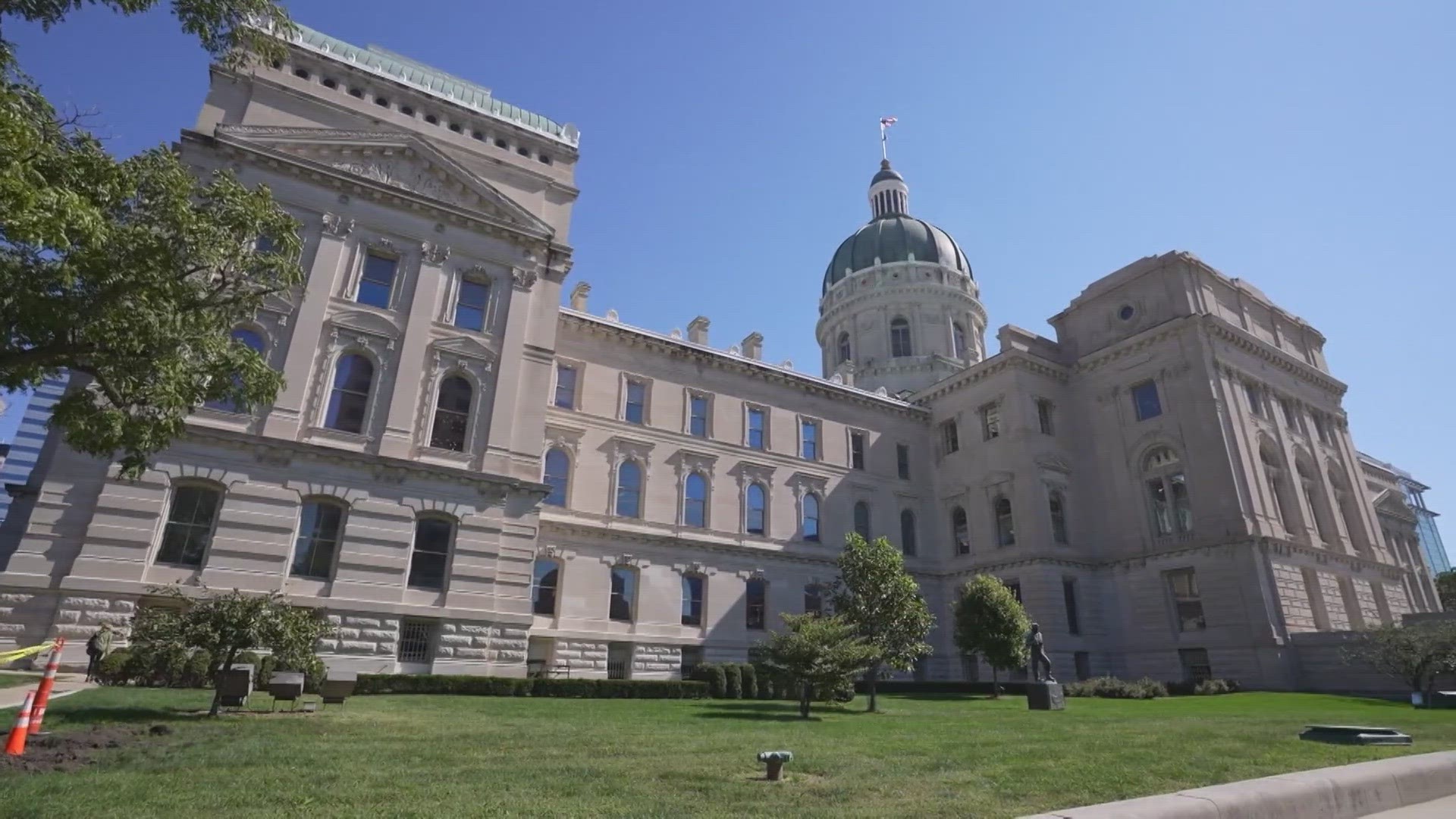INDIANAPOLIS — Monday evening, attorneys for Indiana abortion providers and advocates filed a request with the Indiana Supreme Court to rehear a challenge to the state’s near-total abortion ban in hopes of keeping the law blocked.
The request came just hours before the ban is set to take effect on Tuesday, Aug. 1.
Abortion providers like Dr. Katie McHugh said they are bracing for a huge shift in care.
“Tomorrow, the clinics will just be quiet. The clinics will be open for phones and for follow-ups but not to provide the care that our communities so desperately need and deserve,” McHugh said.
Here’s how this all played out.
Last June, the U.S. Supreme Court delivered the Dobbs decision, reversing Roe v. Wade.
Then in August, Indiana’s General Assembly passed a near-total abortion ban. In early September, the ACLU filed a lawsuit, and a judge temporarily blocked the law exactly one week after it went into effect.
Planned Parenthood hosted a conference Tuesday to discuss its commitment to providing essential health services in Indiana, as the fight to increase access to abortion in the court continues.
“We are here today to assure all Hoosiers - whether you’re white, Black, brown, or Indigenous - whether you’re straight, gay, or trans - whether you have health insurance or you’re uninsured - Planned Parenthood will never back down, not now, not ever, from providing you the care you need," said Rebecca Gibron, CEO for Planned Parenthood Great Northwest.
Gibron also stated that the patients drive every decision they make.
"Every person, in every circumstance, deserves access to health care when and where they need it," Gibron said.
Katie McHugh is an OBGYN in Indiana said she will continue that fight for access to reproductive health care.
"I didn’t understand that my home state would train me to be a highly skilled physician and then ignore my expertise, skills and knowledge. More than ignore, actually, criminalize. And purely for political purposes," McHugh said.
In June 2023, an appeals court lifted the block, which is why the ban can now take effect again on Aug. 1.
The abortion law does have a few exceptions, including cases of rape or incest if a woman is 10 weeks or less into their pregnancy. Abortions up to 20 weeks are also allowed for lethal fetal anomalies or to protect the life of the mother.
McHugh said many providers are still trying to understand the specifics are these guidelines.
“What does that mean? How serious of a health risk does it have to be? Do we have to be close to performing CPR? Do we have to be close to an emergency surgery or do we have to just know this is a health condition that will affect the person for the rest of their lives? Where is the line?” McHugh asked.
The other change is outpatient clinics will no longer be able to provide abortion care.
For perspective, in 2021, more than 8,400 abortions were done in Indiana and only 133 of those were at a hospital, according to state data.
Back in June, the Indiana attorney general celebrated the court lifting the ban, calling it “another win for Hoosier life.”
“We celebrate this day – one long in coming, but morally justified. Thank you to all the warriors who have for this day that upholds life,” Attorney General Todd Rokita said.
As for McHugh, she plans to stay in Indiana saying she isn’t done fighting.
“I will continue to fight the fight and show up for patients in whatever way I can and whatever way is legal,” McHugh said.
Just because the injunction was lifted by the Indiana Supreme Court doesn’t mean the ACLU lawsuit is over. That is still playing out in court.
There is also a separate lawsuit to block the ban based on religious freedom. That means women with "sincere religious beliefs" are not impacted by the ban for now.
Rebecca Gibron, CEO of Planned Parenthood Great Northwest, Hawai'i, Alaska, Indiana and Kentucky, shared the following statement ahead of the ban in Indiana:
“This ban will prevent pregnant Hoosiers from making decisions about their own bodies, and prevent their providers from giving them the care they need – even while ongoing litigation proceeds through the Court. If the Indiana Supreme Court allows the ban to go into effect now, pregnant people and their health care providers will be left to navigate this confusing legal environment on their own. We are hopeful that the court will act to protect the health and wellbeing of Hoosiers.”

